Anonymous Classes, one of the new features of PHP 7, are a flexible and practical way to optimize code and avoid unnecessary overhead. In this tutorial, you will learn how to use anonymous classes to bypass the use of traditional, named classes in certain situations. This allows for a cleaner and clearer implementation, especially in simple scenarios.
Main Findings
- Anonymous classes allow for compact object creation without external class definitions.
- The use of anonymous classes can reduce coding effort.
- They are ideal for simple implementations where reusability is not required.
Step-by-Step Guide
Basic Situation and Problem
Imagine you have a worker that performs different tasks and manages logs. In a traditional implementation, you must define a logger class even if it's only used once. This approach can seem cumbersome as it requires additional lines of code and the definition of a class file. But it doesn't have to be this way anymore.
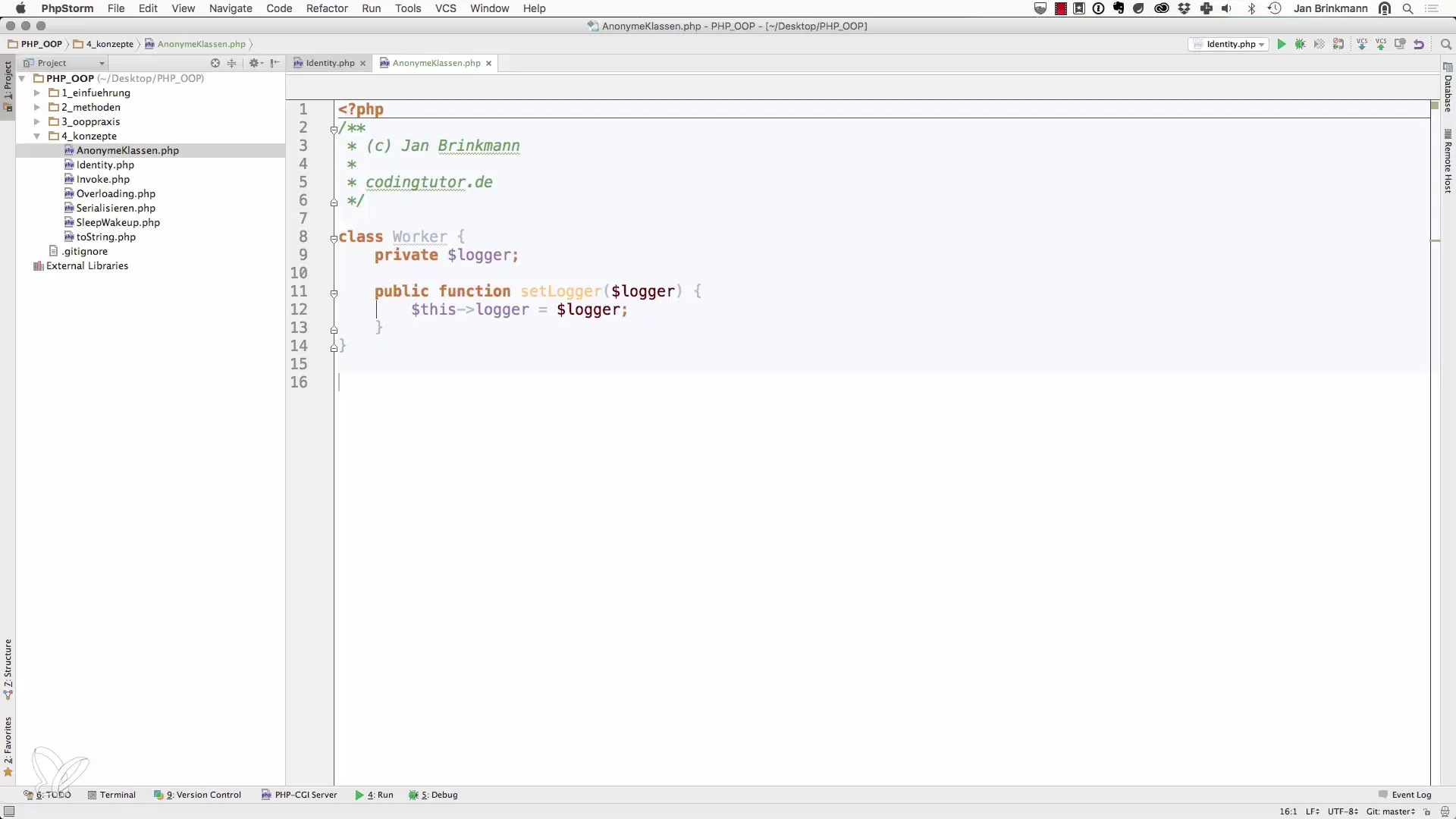
Class Definition and Initialization of the Logger
Before PHP 7, you typically created a logger class that provided a method for logging messages.
This method is functional but causes unnecessary overhead when the logger class is only used once.
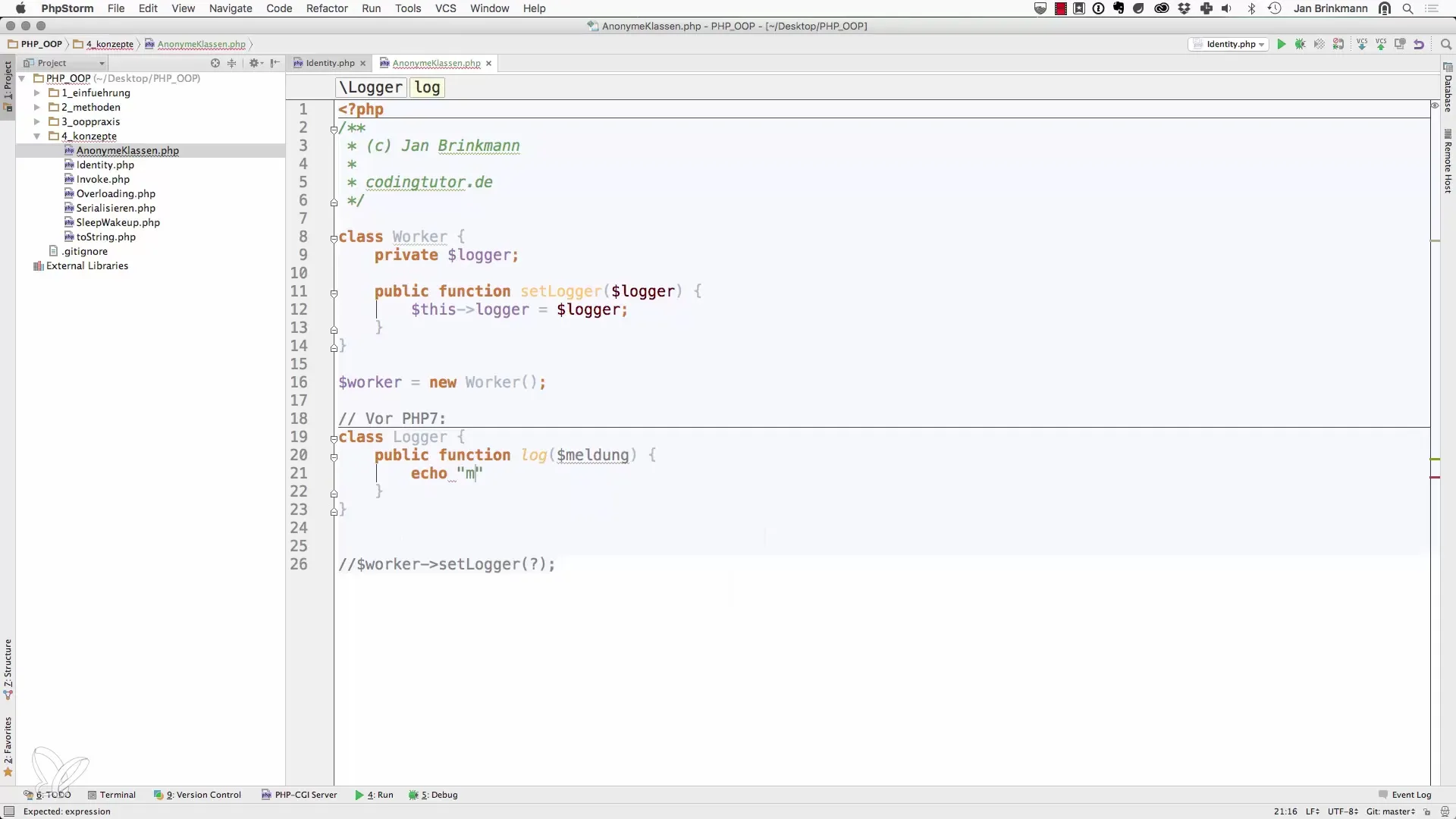
Introduction to Anonymous Classes
With PHP 7, you can now use an anonymous class to define the logger without creating a separate class.
This new syntax eliminates the need to define a dedicated logger class in advance, thus reducing the code required to achieve the same function.
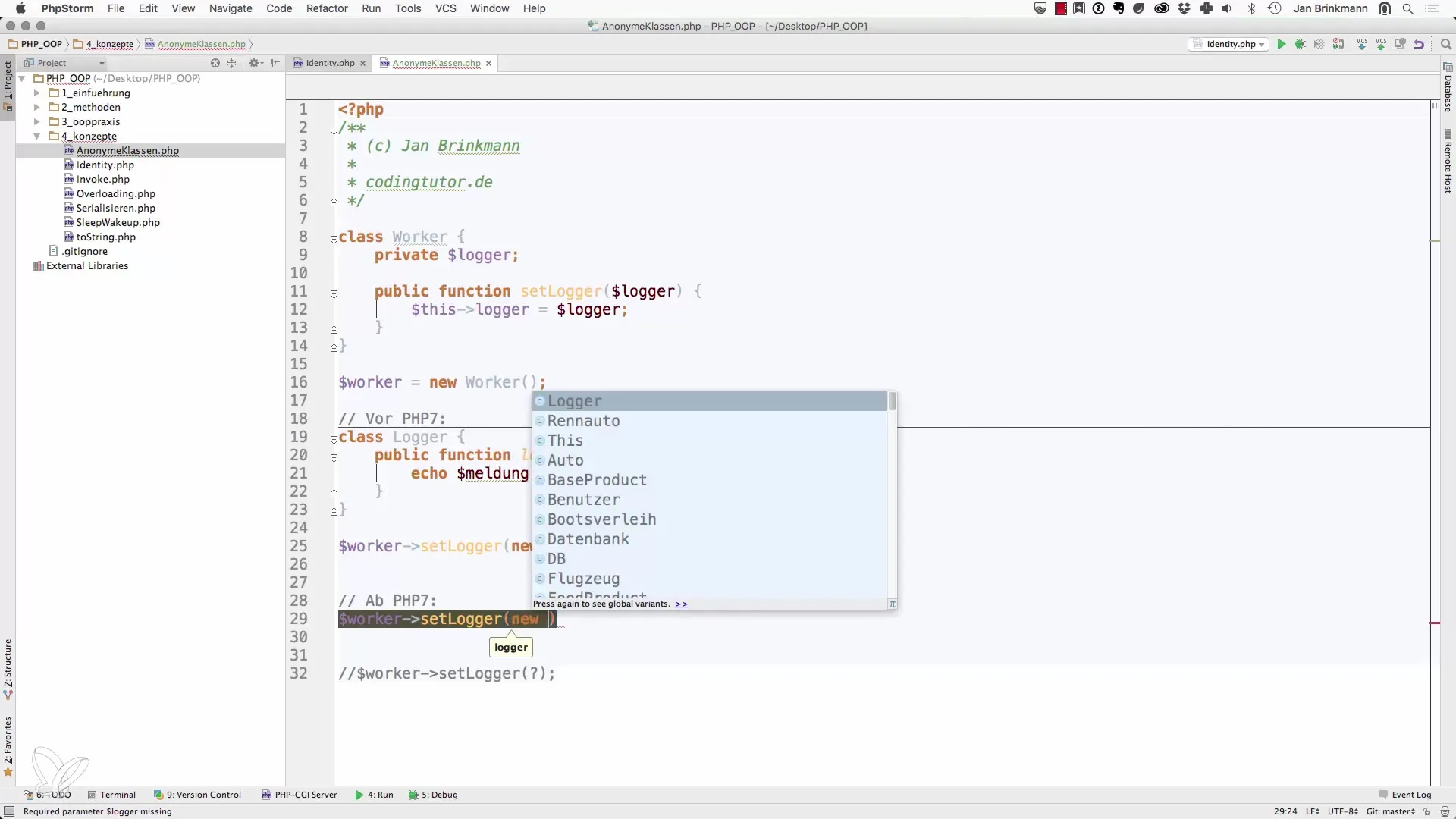
Advantages of Anonymous Classes
The use of anonymous classes has several advantages:
- Compactness: All code is found in one place, making it easier to read and handle.
- Flexibility: You can directly specify which methods your anonymous class needs.
- Less overhead: No additional code is required for class definitions, speeding up the development process.
With this, you achieve the same result as before, but in a more elegant and user-friendly way.
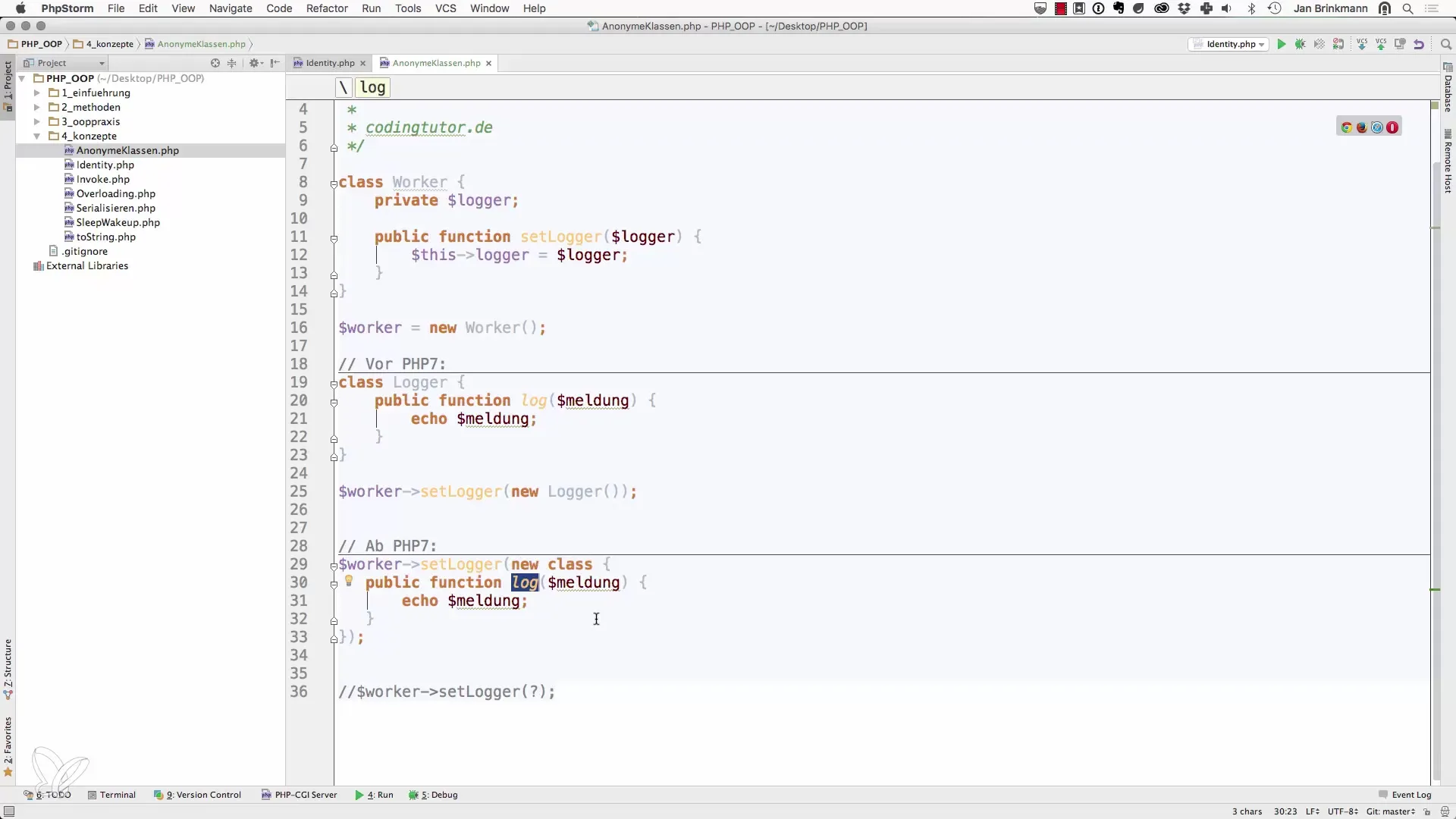
Compatibility Note
It is important to note that the ability to use anonymous classes means that your code is only compatible with PHP 7 or later versions. If you are working on an open-source project or your code is intended for a broader user base, you should consider this in your considerations.
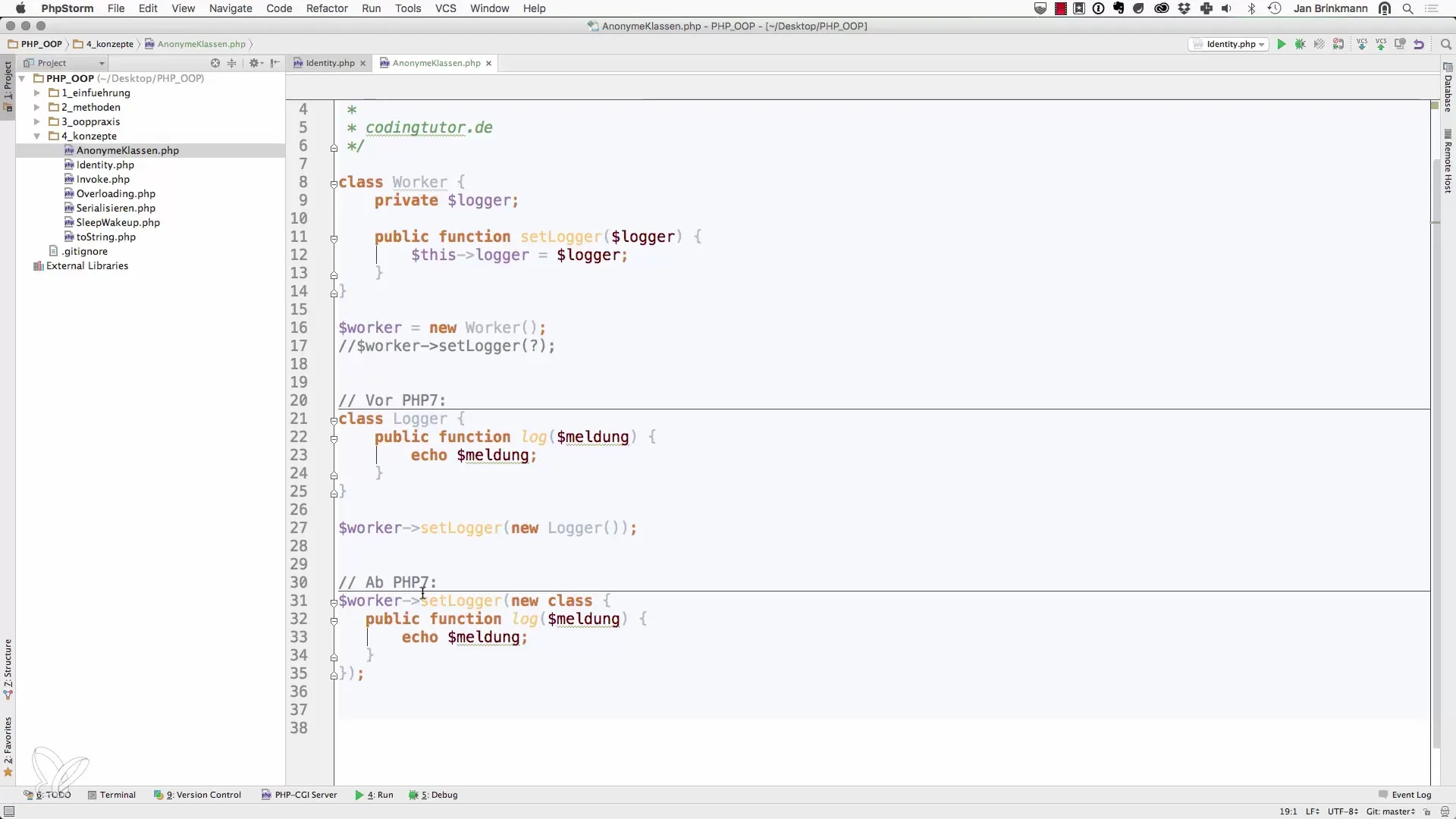
Summary - Anonymous Classes in PHP 7 to Reduce Overhead
Anonymous classes offer an efficient and elegant solution for handling object-oriented programming tasks. By using them, you can significantly save on code and increase clarity. By defining a class simply when needed, you can quickly respond to specific requirements without losing the flexibility and dynamics of your code.
Frequently Asked Questions
What are anonymous classes in PHP?Anonymous classes are classless objects that are defined directly at instantiation without requiring a separate name for the class.
Why should I use anonymous classes?Anonymous classes reduce coding effort and are ideal for temporary implementations where reusability is not necessary.
Are there drawbacks to using anonymous classes?Yes, the main drawback is compatibility, as anonymous classes are only supported in PHP 7 and higher versions.
Can I use anonymous classes for complex structures?For complex structures, it is generally recommended to use named classes to ensure maintainability and clarity of the code.
How do anonymous classes differ from regular classes?Anonymous classes do not have specific names and are limited to the location where they are created, while regular classes can be used anywhere in the code.


